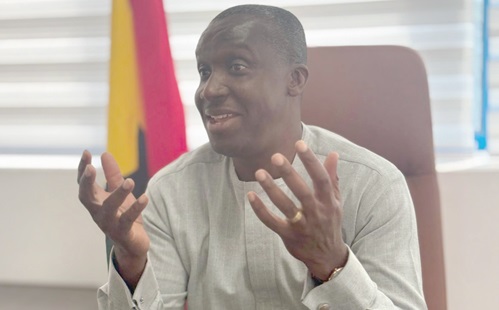It’s illegal to bury without permit
It’s illegal to bury without permit - Births and Deaths registry warns

The Births and Deaths Registry has warned the public that it is illegal by law to bury a deceased person in the country without first registering the death and securing a burial permit.
It stressed that the penchant to bury corpses without the necessary documentation and permit could impact public health and the state’s health budget.
While explaining that the law required proper documentation before burial, the registry also admitted that the widespread use of unregulated cemeteries had made it easy for families to bypass the legal process.
“People are dying, but we are unable to register the deaths because they have access to burial grounds where no documentation is required,” the Registrar of the Birth and Deaths Registry, Samuel Adom Botchway, said in an interview with the Daily Graphic.
He said the registry had projected to record 143,484 deaths by the end of this year, but the outfit had, however, recorded only 27,638 registered deaths as of June this year.
“It’s not that people are not dying; many burial grounds are not regulated, and families bury without the necessary documentation, which is illegal,” he said.
Why death registration
Mr Botchway stressed that registering a death was not only a legal obligation but also a valuable tool for public health and family well-being.
“Death registration allows us to understand the causes of death. If a family loses multiple members to hypertension, for instance, that’s a sign to take action,” he explained.
On a broader scale, the data gathered would help the district assemblies, for instance, to plan better health interventions, he further stated.
“Without registration, we miss out on statistics that can point to trends like cholera outbreaks or maternal deaths; problems that can often be solved with targeted interventions like sanitation or better hospital equipment,” he added.
Mr Botchway further noted that death certificates were often required to access benefits such as life insurance, SSNIT payments, bank accounts and property claims.
“If you don’t have a death certificate, you can’t access any of these; it’s the only legal proof that someone has passed away,” he said.
Stakeholder engagements
Mr Botchway revealed that the registry had initiated engagements with key stakeholders, including religious leaders and traditional authorities, who played vital roles in funeral processes across the country.
“When someone dies, religious leaders, whether Christian, Muslim, or traditional, are the first point of contact.
They perform rites, so we are working with them to encourage families to obtain the necessary documentation before burial,” he explained.
He cited a promising initiative in some areas where the local chief and funeral committee had agreed to demand death certificates before approving burial dates.
“It’s a very good arrangement that we believe can significantly boost registration in that area,” Mr Botchway noted.
He said the registry was also revitalising its partnerships with faith-based organisations, providing them with training and official endorsement to help them support the national registration drive.



